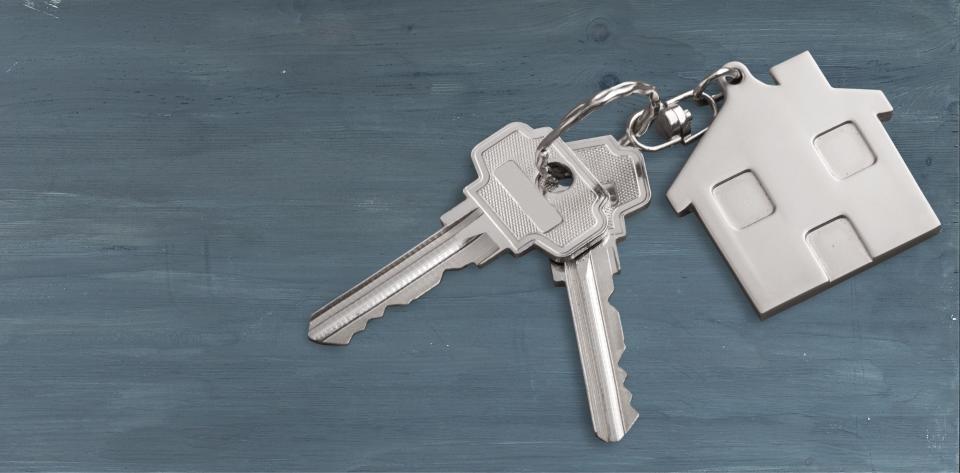5 Very Real Questions To Ask Before Moving In Together
So you’re ready to take the plunge. Shacking up, cohabitating, cuffing — however you refer to it, moving in together is a big deal. (It sure beats living alone.) And while that may seem obvious, what may not be are the questions you should be asking your soon-to-be roommate before any semblance of a lease is signed.
“Most of the times when couples are making these important decisions, they make assumptions about their partner’s wishes,” said Dr. Sabitha Pillai-Friedman, assistant professor in the Human Sexuality Program at Widener University. “When these issues are brought into the open and discussed, there is less room for disappointments and resentments later.”
That isn’t to say that forgoing the “talk” will make or break your relationship — there’s plenty of research out there offering insight on that — but it could keep you from looking for both love and a gently-used sofa on Craigslist down the road.
We asked the experts about the best way to break the ice and here’s what they said:
What To Ask: Who is paying for what?

Follow up with: Who is bringing what? What are we purchasing together? What is still needed?
Why It’s Important: “It’s essential to discuss spending before you move in together,” said relationship expert Andrea Syrtash. “Money issues are common in a relationship, but if things are delineated and agreed to in advance, you can avoid common money arguments. Decide if you’ll set up a joint account for household expenses and/or who is responsible for what. It’s not unusual for one person in a couple to be a spender and the other to be a saver. It’s okay if you don’t agree on all aspects of how you’d like to spend your money. Just remember that being in a partnership means you’ll meet in the middle on issues so neither of you feel uncomfortable.”
A chat about your household’s pet policy is also important here, Pillai-Friedman added. Who is responsible for the pet care and medical bills, for instance. Plus, if you’re both bringing an animal into the house, do they get along? Are they allowed on the couch, bed, kitchen counter, etc.?
Also important: What religious symbols can be displayed. “Would the Jewish partner be comfortable with the Christmas tree in the house? [This is] very important for inter-faith couples,” Pillai-Friedman added.
What to ask: Are both our names on the lease?

Why It’s Important: “It may be uncomfortable to discuss this question, especially since you’re acknowledging that you may not be together forever and it’s possible the relationship won’t work out. But it’s essential to put this kind of question on the table so neither of you is blindsided,” Syrtash says.
What to ask: How are we handling grocery shopping and meal planning?

Follow up with: How often do you clean, say, the bathroom? Would you rather cook or wash the dishes? How often do you take out the garbage? Every night? Or when it’s full?
Why It’s Important: “These questions are about household tasks and it’s good to put the chores down (bathroom, garbage, dishes, etc) and figure out the rooms or areas that you’d each like to manage,” according to Syrtash. “Most couples find a routine in which one does the majority of work in one area (i.e. taking out the trash or grocery shopping). As long as you’re dividing the labor, you’ll probably feel okay about it. It may be helpful to have a wheel of chores or a schedule if you find one of you is doing more than the other.”
It’s better if couples over-plan this part, Pillai-Friedman said. “I suggest to couples that they create a chore schedule with individual responsibilities listed. This is something that can be negotiated as you go.”
What To Ask: What are your thoughts on having guests over? When is a heads-up required?
Love HuffPost? Become a founding member of HuffPost Plus today.

Follow up with: Do you have any must-watch TV? What is your schedule like? Are you a morning or night person?
Why It’s Important: You’re not going to want to come home to your partner and their sister binge-watching “The Real Housewives” three nights a week, are you?
“Chances are if you’ve dated for a while, you have at least a vague idea on what shows you each like, your social style and whether or not you’re a morning or night person,” Syrtash explained. “But it’s good to establish a system now that you’re officially sharing a space. Perhaps one of you is spontaneous and the other needs to plan. In this case, you may establish a boundary in which you will give each other notice before anyone comes over. This way, you can decide on case-by-case basis if it works for both of you.”
What To Ask: What is the ultimate goal of moving in together?

Why It’s Important: “This is something that most couples do not talk about,” according to Pillai-Friedman. “The goal could be as follows: Saving on rent (no permanent plans); enjoying each other’s company and waiting to see where it goes; planning to marry or make a permanent commitment after a specific period of time.”
Related...
6 Signs It's Too Soon To Move In Together
6 Awkward Conversations About Money Every Couple Needs To Have
6 Financial Rules Every Couple Should Follow When Moving In Together
This story was originally published in 2014 and has undergone minor editing updates.
Also on HuffPost

Earny

What it costs: Free
Raise

What it costs: Free (including shipping on physical cards)
Cardpool

What it costs: Free
Digit

What it costs: Free to try, then $2.99 per month
Qapital

What it costs: Free
Acorns

What it costs: Free to try, then $1 a month (or 0.25 percent a year for larger accounts); also free for college students and anyone under age 24
This article originally appeared on HuffPost.


